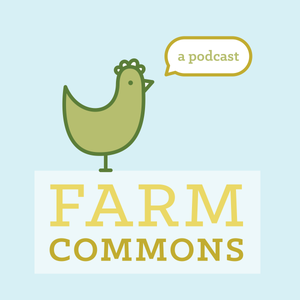
Farm Commons
Farm Commons
The educational Farm Commons podcast.
- 50 minutes 50 secondsEpisode 76: Facing Food Safety Regulation with Farmer Lindsay
Lindsay Klaunig (she/her) is the farmer and owner of Trouvaille Farm in Athens, Ohio. She raises grass-fed beef and goats on pasture, heirloom crops on the ridge tops, and makes artisan chocolate and other treats in their farm kitchen. She is also a seed producer, growing heirloom vegetable seeds that are sold through small regional seed companies. Previously, Lindsay worked as a specialty cheesemaker on a small-scale dairy farm in the early days of the Food Safety Modernization Act (FSMA). It was during this time that Lindsay experienced a federal site inspection.
In this episode, Lindsay is interviewed by her longtime friend Isabel. The two discuss how food safety enforcement has changed over the years, specifically describing what the situation was like before FSMA and how FSMA changed things in many ways for the better. Lindsay opens up about the FDA audit that she went through, sharing powerful tips for balancing out the power dynamic with regulators and offering wise insights about how and why communication and relationship building have been critical to her resilience.
As Linday says to Isabel, “growing food is the most important thing you could do for a living, but if you’re paying attention you’ll also see that it’s fraught, it’s risky, and opens you up to a world of divisive opinions, clashes in values, and constantly changing rules and changing guidance from the regulators…” and yet she keeps choosing to do it, as perhaps you keeping choosing to do as well. You will walk away from this episode with a refreshed perspective on food safety risk management, and a healthy reminder that your risk tolerance evolves right along with you.
Farm Commons is grateful to have collaborated with Lindsay as a member of the 2023 Collaborative Learning Fellowship.
A full transcript of the episode will be available soon.
8 May 2024, 6:07 pm - 50 minutes 25 secondsEpisode 75: Safe Collaboration Between Farm Businesses with Farmer Iriel
Iriel Edwards (she/her) is a seed farmer and owner of Dancing Radicle Farm in Alexandria, Louisiana. Her passions for seeding justice in our food system and dismantling private property feed her excitement for cooperative ownership as it relates to assets like equipment and land.
In this episode, Iriel speaks with her peer Lilli Voorhies of Bumble Prairie Farm, and the two explore what it means to set up what Iriel calls “safe collaboration” between separate farm businesses. Throughout their conversation, they probe the themes of cooperative decision-making, sharing values and holding differences, and important discussions for scaling seed processing operations. If you are a seed producer, you’ll gain insights into considerations for scaling a seed operation as well as an insider’s look into Louisiana’s growing seed supply chain. If you’re not a seed producer but you’re farming with others, you’ll find encouragement from Iriel and Lilli to have more discussions about your needs and goals for the collaboration because, as Iriel quotes, “Sharing values with your customers is different from sharing values with your farming partner,” which is why talking things through, particularly areas of potential tension or conflict, is key to resilience.
Farm Commons is grateful to have collaborated with Iriel as a member of the
2023 Collaborative Learning Fellowship.
A full transcript of the episode will be available soon.
19 April 2024, 3:50 pm - 22 minutes 2 secondsEpisode 74: Collective Land Access with Farmer Sagan
Sagan Gray (they/them) is a co-owner of Bramblenook Farm, a small vegetable production farm located in Scituate, Rhode Island on the unceded lands of the Narragansett, Pokanoket, and Wampanoag people. Their farm business has been in operation since 2019, and started fresh on collectively purchased land in 2022. In this episode, they share an honest picture of the underlying power dynamics of collective land ownership, as well as navigating legal barriers as a transgender person trying to move forward with a general distrust of these systems. Sagan’s wisdom is a catalyst of inspiration for how the paperwork process of creating an LLC, including the Articles of Incorporation and operating agreement, provide structure when delving into the shared values of a business. They will inspire you to begin asking the questions of importance to you in your business partnerships, and to begin resourcing for local support to get the assistance you need.
Farm Commons is grateful to have worked with Sagan as a member of the 2023 Collaborative Learning Fellowship.
Find a transcript of this episode here
Here’s what Sagan had to say about their experience sharing their story of legal resilience:
In sharing your farm resilience story, what are you most grateful for from that experience?
Taking the time to craft something to be disseminated or shared really pushed me to consider what I thought was worth sharing, to lean into believing that elements of my story would be worth sharing. I am grateful to have come into a new awareness of what some of those truths are for me. Farming requires such a breadth and depth of knowledge, and there is always so much I don't know! This often makes me overlook what I have learned or disregard what I might have to share. This was a great push and reminder to appreciate my own wisdom.
Did you encounter any challenges in sharing your story? What was that like?
Yes, it was hard to decide how vulnerable to be: what feels safe vs what feels comfortable; how much to share when it might impact others I live and work with; was my hesitation rooted in fear that I might overcome or that I should mind? Acknowledging the fears and insecurities that often hinder me from sharing in the first place was a necessary and helpful step in gathering my thoughts and sharing my story.
What did the storytelling journey illuminate for you? What are you seeing differently as a result of this experience?
My approach to risk management really has shifted. The Collaborative Learning Fellowship gave me the confidence and motivation that I needed to guide our collective group through our own risk management process. We are still in the midst of it, but it would not be happening at all yet without my experiences from the fellowship.
What is your hope for folks who hear your story?
I hope it offers an extra nudge of encouragement to prioritize their own safety and protection amidst our challenging and discriminatory systems. Having the courage to approach a process that you don't understand and you know wasn't built for you to take what you can repurpose it is hard work, and I just hope this offers a little motivation for folks in a similar mindset.
What tool(s) or resource (s) have been key to your sense of resilience?
Access to professional support: a decent insurance agent, a tax preparer, a lawyer, templates to work off of. Financial support to cover professional expenses. Collective support - having friends, family, and community in this process with me and making time for joy and celebration. Alone time to recharge and recenter. Sanctuary from the chaos of the world. A sense of purpose.
22 March 2024, 8:29 pm - 15 minutes 57 secondsEpisode 73: Could the Zoning Code put a Damper on Your Botanical Production Plans?
Did you know that when a farmer starts drying herbs for tea or turning elderberries into syrup, a farm is potentially subject to different zoning or land use rules? In this podcast, Eva and Rachel help you avoid getting caught off-guard by exploring how and why zoning is a powerful decision making tool for navigating the legal transition point between growing herbal ingredients and making herbal/botanical products with regards to land use regulations. You’ll also hear important insights from farmers who researched their zoning codes and, as a result, are better informed and able to make the best decisions for their business goals.
This is the final episode of a special 3-part mini series on boosting legal resilience when making and selling botanical products. Check out the other episodes in the list below!
Other episodes in the series:
- Episode 71: Navigating Botanical Product Regulation and Enforcement
- Episode 72: How to Create Legally Resilient Labels for your Botanical Products
Recommended Resources:
For a full transcript of the episode, click here.
This project was generously funded by the Minnesota Department of Agriculture.
15 March 2024, 7:10 pm - 20 minutes 12 secondsEpisode 72: How to Create Legally Resilient Labels for your Botanical Products
What makes for a good label on your teas and tinctures? In terms of risk management, a good botanical product label is one that satisfies the FDA. In this episode, Eva and Chloe walk you through the 6 key elements of creating labels for your botanical products to help you market your products with confidence.
This is the second episode of a special 3-part mini series on boosting legal resilience when making and selling botanical products. Check out the other episodes in the list below!
Other episodes in the series:
- Episode 71: Navigating Botanical Product Regulation and Enforcement
- Episode 73: Could the Zoning Code put a Damper on Your Botanical Production Plans?
For a full transcript of the episode, click here.
This project was generously funded by the Minnesota Department of Agriculture.
14 March 2024, 1:38 pm - 30 minutes 49 secondsEpisode 71: Navigating Botanical Product Regulation and Enforcement
Do you make and sell botanical products like tinctures and teas from herbs you grow on your farm? Understanding who regulates your product and the rules they enforce with your production, labeling, and marketing can be confusing. In this episode Rachel and Eva break down 3 key areas of botanical regulation you should be aware of when producing tinctures, teas, oxymels, and more for sale to the public.
This is the first episode of a special 3-part mini series on boosting legal resilience when making and selling botanical products. Check out the other episodes in the list below!
Other episodes in the series:
- Episode 72: How to Create Legally Resilient Labels for your Botanical Products
- Episode 73: Could the Zoning Code put a Damper on Your Botanical Production Plans?
Recommended Resources:
For a full transcript of the episode, click here.
This project was generously funded by the Minnesota Department of Agriculture.
11 March 2024, 4:26 pm - 24 minutes 50 secondsEpisode 70: Revisiting Paying Wages as Salary on the Farm and Ranch
In honor of Open Farm Employment Law Week beginning on Monday September 18th, we are re-releasing our podcast episode on Why Some Farms Pay Wages as Salary.
Why the return? Because overtime pay rules continue to evolve across the country, and farmers and ranchers need to be aware. For example, Oregon’s overtime rule changed this year in 2023, requiring overtime pay for farm workers. If you are required to pay overtime to workers on your farm or ranch, salary may be an option you want to explore. Tune in to learn more about overtime and salary, and be sure to check out the resources below learn the employment laws for your state. If you aren’t a Farm Commons member -- don't worry, these resources are freely available during Open Farm Employment Law Week so be sure to check them all out!
Recommended resources:
14 September 2023, 6:43 pm - 21 minutes 41 secondsEpisode 69: Protecting Your Long-Term Lease
This episode is a great listen for people with, or pursuing a lease that will last for five or more years. A lot can change over time, and ensuring that your lease is valid even if the land changes ownership can bring great peace of mind. Rachel walks us through three levels of resilience farmers and ranchers can pursue when it comes to securing their lease.
For a full transcript of this episode, please click here.
22 August 2023, 9:50 pm - 27 minutes 20 secondsEpisode 68: Managing Recreational Liability on the Farm
It's summertime and recreation is on the mind! The top 3 recreational uses we are seeing farmer landowners share with others are (1) nature recreation, like letting CSA members onto the farm for birding and hiking, (2) hunting access for friends and family that’s free or paid, and (3) foraging by individuals in the community. The big risk here is injuries and injuries can occur in many ways. In this episode, we share two strategies that are proactive and designed to manage the risk of visitor injuries, while also giving you a defense if those bad things do come to pass.
Recommended Resources:
- Episode 50: Protecting Your Foraged and Wild Foods Revenue
- https://assets.recenter.tamu.edu/documents/articles/570.pdf
- https://agrilifeextension.tamu.edu/asset-external/ranchers-agricultural-leasing-handbook-grazing-hunting-and-livestock-leases/
This material is funded in partnership by USDA, Risk Management Agency, under award number RMA22CPT0012392.
4 August 2023, 2:33 pm - 14 minutes 39 secondsEpisode 67: The Truth About Crop and Livestock Insurance Premiums
Given the typical profit-driven nature of insurance, many farmers and ranchers approach crop and livestock insurance with caution. But is the caution necessary? In this episode we explore what sets crop and livestock insurance apart from other types of insurance.
For a full transcript of this episode, please click here.
Additional resources: Crop and Livestock Insurance Options for Diversified Operations
This material is funded in partnership by USDA, Risk Management Agency, under award number RMA22CPT0012392.
7 July 2023, 6:55 pm - 23 minutes 59 secondsEpisode 66: Leasing Farmland to Your Farm Business
Have you heard that it's good practice to lease your farmland to your farm or ranch business? Have you wondered why this is and what this would look like? Tune in because we've got answers for you! In this episode, we explore the advantages and disadvantages of this leaseback arrangement, including balancing the upside of the farm business having a “friendly” landlord with the reality that the business might want to pay a fair market rental. We also highlight tax issues and identify key documents and paperwork to ensure the arrangement maintains legal integrity.
Recommended resources:
- Sample Annotated Long-Term Agroforestry Lease Agreement
- LLC Fundamentals
- Farmers' Workbook for Creating a Governance Document
This work is supported by the Farm and Ranch Stress Assistance Network (FRSAN), grant no. 2021-70035-35372/project accession no. 1027099, from the U.S. Department of Agriculture, National Institute of Food and Agriculture.
15 June 2023, 7:32 pm - More Episodes? Get the App
- https://farmcommons.org
- en-US
Your feedback is valuable to us. Should you encounter any bugs, glitches, lack of functionality or other problems, please email us on [email protected] or join Moon.FM Telegram Group where you can talk directly to the dev team who are happy to answer any queries.
 Growing Local
Growing Local
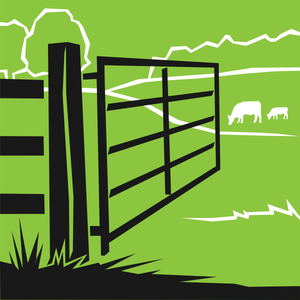 Land Stewardship Project's Ear to the Ground Podcast
Land Stewardship Project's Ear to the Ground Podcast
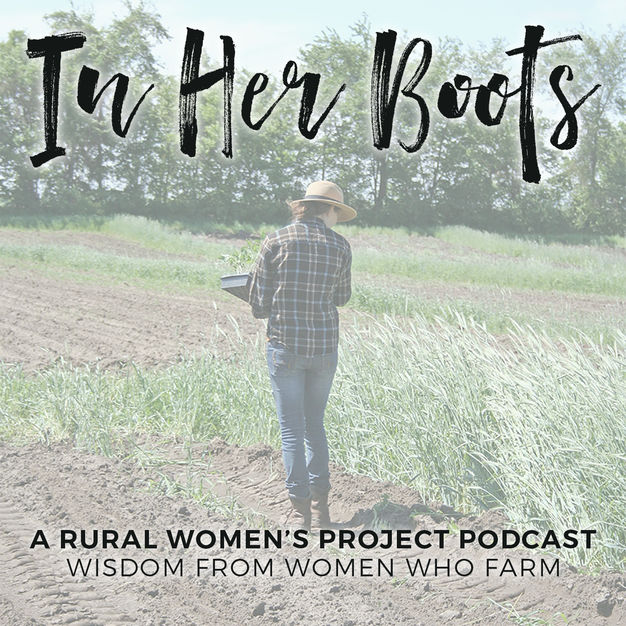 In Her Boots Podcasts
In Her Boots Podcasts
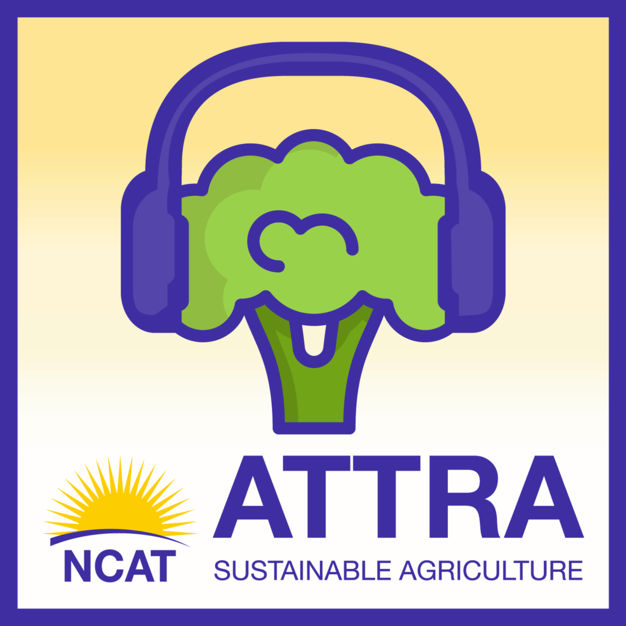 ATTRA - Sustainable Agriculture
ATTRA - Sustainable Agriculture
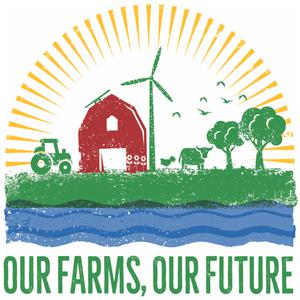 Our Farms, Our Future
Our Farms, Our Future
 Greenhorns Radio
Greenhorns Radio